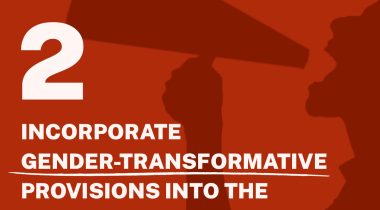
Nick Shaxson ■ New report: Growth in Africa fails to curb soaring inequality

 From TJN-Africa and Christian Aid:
From TJN-Africa and Christian Aid:
February 24 2014
GROWTH IN AFRICA FAILS TO CURB SOARING INEQUALITY, SAYS NEW REPORT
Unprecedented economic growth in a number of African countries is going hand in hand with soaring inequality, which national tax systems are failing to address, according to a new report.
Report authors, Tax Justice Network-Africa and international development agency Christian Aid, say the surge in inequality is not simply the result of the rich getting richer.
Instead, there is clear evidence that in many cases growth is taking place at the expense of the poor, who are becoming increasingly impoverished.
As a result, progress in human development has been disappointingly limited given the volume of wealth created during a decade of high growth across the continent
The report, ‘Africa Rising? Inequalities and the essential role of fair taxation’, says tax is one of the most potent tools governments have to address inequality, but tax systems in many African countries currently do not fulfil that function.
Instead, taxes have been introduced that disadvantage the poor, while tax systems that could be used to redistribute wealth more fairly are being undermined by tax dodging and illicit finance flows facilitated by off-shore secrecy.
The report investigates income inequality in eight sub-Saharan countries, Ghana, Kenya, Malawi, Nigeria, Sierra Leone, South Africa, Zambia and Zimbabwe, and examines the ability of the tax systems in each to raise money to address poverty by taxing companies and individuals with higher incomes.
Alvin Mosioma, spokesperson for Tax Justice Network, Africa, says the findings showed inequality is becoming a problem that should be of ‘huge concern’ to most of the governments concerned.
‘Inequality has been exacerbated by the growth model in many countries which has seen a concentration of income,’ he said. ‘It also reflects the inability of governments to tax the proceeds of growth, either because so much is given away in corporate tax breaks, or has escaped offshore into tax havens.
‘Until tax dodging is tackled effectively, nationally and internationally, and illicit finance flows from the continent halted, economic inequality will continue to rise.’
He added that a forthcoming report from the African high level panel on illicit financial flows from Africa, chaired by former South African president Thabo Mbeki, would present a key opportunity to recommend practical ways to address the problem.
‘The panel has been looking at the scale of illicit wealth leaving Africa and investigating what can be done. This could not be more critical. Speaking with a unified African voice would have a huge impact in advocating for global change,’ he said.
Sophie Powell, Christian Aid’s Africa policy and advocacy manager, said: ‘African governments at present are finalising their position on the framework that should succeed the Millennium Development Goals at the end of 2015. They and other governments globally must prioritise the building of fair taxation systems to address inequality at its core.’
‘At present, while discussions on tax reform take place among the G8, G20 and OECD, it is still far from certain whether developing countries in Africa and elsewhere will be included in, or benefit from, the changes being discussed.’
The report examines the relationship between the national taxation systems in the countries examined, and international taxation issues.
The key problems it identifies include:
- A reliance in many parts of Africa on natural resource extraction, a sector the report says ‘is known to be rife with tax dodging techniques.’ In addition, it adds, it is more likely in such undiversified economies that wealth will be diverted by elites into tax havens.
- Weak tax authorities with limited expertise and resources to tackle tax abuse. Poor enforcement means the continent’s high net worth individuals often evade tax.
- The damaging impact of the tax consensus, led by the International Monetary Fund (IMF), which has focused, on reducing corporate, and to a lesser extent, personal income tax while expanding the base of both consumption and value added tax – both of which hit the poor hardest.
- Corporate income tax reduced because of both tax dodging, and through tax exemptions proffered by governments that mistakenly believe tax breaks will attract sustainable investment.
- Governments have struggled to introduce new taxes on income, wealth and property, often because of the resistance of the private sector, and elites, to reform.
- Major shortcomings in personal income tax systems, which place an unfair burden on employees, leaving higher earning, self-employed people rarely paying tax.
- Income tax thresholds are too low and do not protect the poor.
The report identifies tackling financial secrecy and tax havens as key to reform. ‘If countries in Africa cannot tax income and wealth correctly, they will shift the tax burden onto the poor,’ it says.
‘While individual governments must be held accountable for their policy choices, the international community must shoulder a lot of the responsibility for increasing economic inequalities and for the short comings of tax systems and public finances in sub-Saharan Africa.’
Report available here:
If you would like further information, please contact Andrew Hogg at Christian Aid on (44) 207 523 2058 or 24 hour press duty phone – 07850 242950 or contact TJN-Africa here.
See the report covered in The Guardian here.
Related articles

The myth-buster’s guide to the “millionaire exodus” scare story

Money can’t buy health, but taxes can improve healthcare
The elephant in the room of business & human rights
UN submission: Tax justice and the financing of children’s right to education
14 July 2025
One-page policy briefs: ABC policy reforms and human rights in the UN tax convention
Tax justice pays dividends – fair corporate taxation grows jobs, shrinks inequality
UN Submission: A Roadmap for Eradicating Poverty Beyond Growth
A human rights economy: what it is and why we need it

Do it like a tax haven: deny 24,000 children an education to send 2 to school


